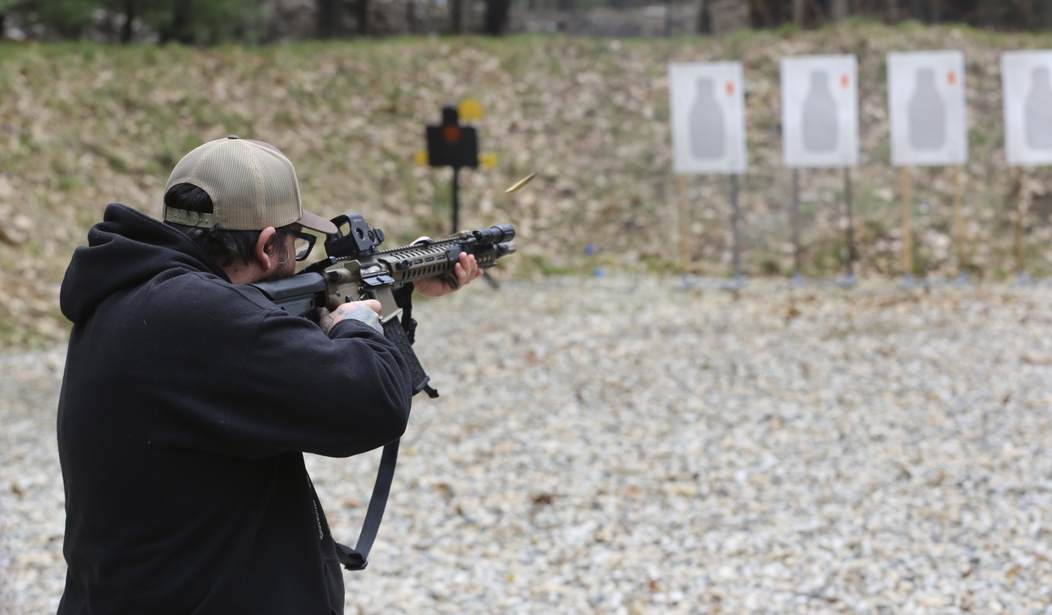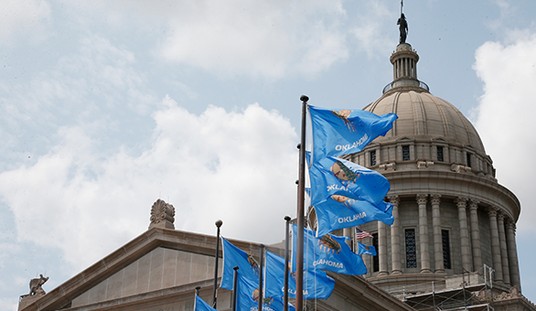The case still has a way to go before it’s finally decided, but Second Amendment supporters did win a big legal victory on Thursday when Pennsylvania’s Commonwealth Court of Appeals ruled that Stroud Township’s ban on home gun ranges violated the Second Amendment rights of a resident who had a private range on his property, but was forbidden from using it after the ban took effect in 2011.
A trial court originally ruled in favor of the township, but the Court of Appeals sent the case back to the judge with instructions to consider all of the plaintiff’s arguments, including his claim that the ordinance violated his Second Amendment rights. After another flurry of arguments, the judge once again granted summary judgment to the township, but this time the Court of Appeals didn’t offer any helpful hints to the judge about the constitutionality of the ban. They made it clear that the judge had erred.
The Ordinance imposes a burden on the Second Amendment right to maintain proficiency in firearm use by essentially imposing an outright ban on target shooting everywhere in the Township except two specific zoning districts. The Township did not meet its burden under the intermediate scrutiny standard to justify such an outright ban on personal shooting ranges at one’s residence, because it did not establish that the Ordinance “does not burden more conduct than is reasonably necessary.”
In reaching our conclusion, we do not discount the importance of regulating target shooting in a residential environment and the important policy reasons for the Ordinance, nor are we holding that every person needs to have the ability to have a personal shooting range on his property. To the contrary, a municipality clearly may regulate such activity. This Court has recognized that Second Amendment rights are “not unlimited” and “may be restricted in the exercise of police power for the good order of society and [the] protection of citizens.” Perry v. State Civ. Serv. Comm’n, 38 A.3d 942, 955 (Pa. Cmwlth. 2011).
Yet, as we have previously held: It must be remembered . . . that the police power delegated by the state is not infinite and unlimited. The action taken thereunder must be reasonable, it must relate to the object it purports to carry out, and it must not invade the fundamental liberties of the citizens. It must also be remembered that even legitimate legislative goals cannot be pursued by means which stifle fundamental personal liberty when goals can be otherwise more easily achieved.
It’s worth noting that the Court of Appeals used an intermediate scrutiny approach to the township’s ban on private gun ranges. That standard has more often than not been used to uphold restrictions on the right to keep and bear arms, which is why we’ve seen Supreme Court justices like Clarence Thomas and Brett Kavanaugh publicly state in dissents to denials of cases that SCOTUS needs to take up more Second Amendment cases in order to address the abuses of intermediate scrutiny by lower courts.
Just like a firearm, apparently intermediate scrutiny can be used for good or bad, depending on the judge wielding the legal theory like a sword. In the hands of a judge hostile to the Second Amendment, intermediate scrutiny can uphold any gun law imaginable. In the hands of judges that, whatever their personal views, treat the Second Amendment with the same reverence as other civil rights, intermediate scrutiny can be used in defense of individual liberty against the stifling power of the state.
This ambiguous position is one reason most gun owners are thrilled to see the Supreme Court take up a challenge to New York’s carry laws. For the first time in over a decade, the Court is going to rule on a Second Amendment case, and beyond the basic issue of whether New York’s subjective “may issue” carry laws violate the right to keep and bear arms, the case will give the Court an opportunity to set the record straight on the fundamental importance of the right of the people to keep and bear arms and make it clear to lower courts that they must stop treating the Second Amendment as a second-class right.









Join the conversation as a VIP Member